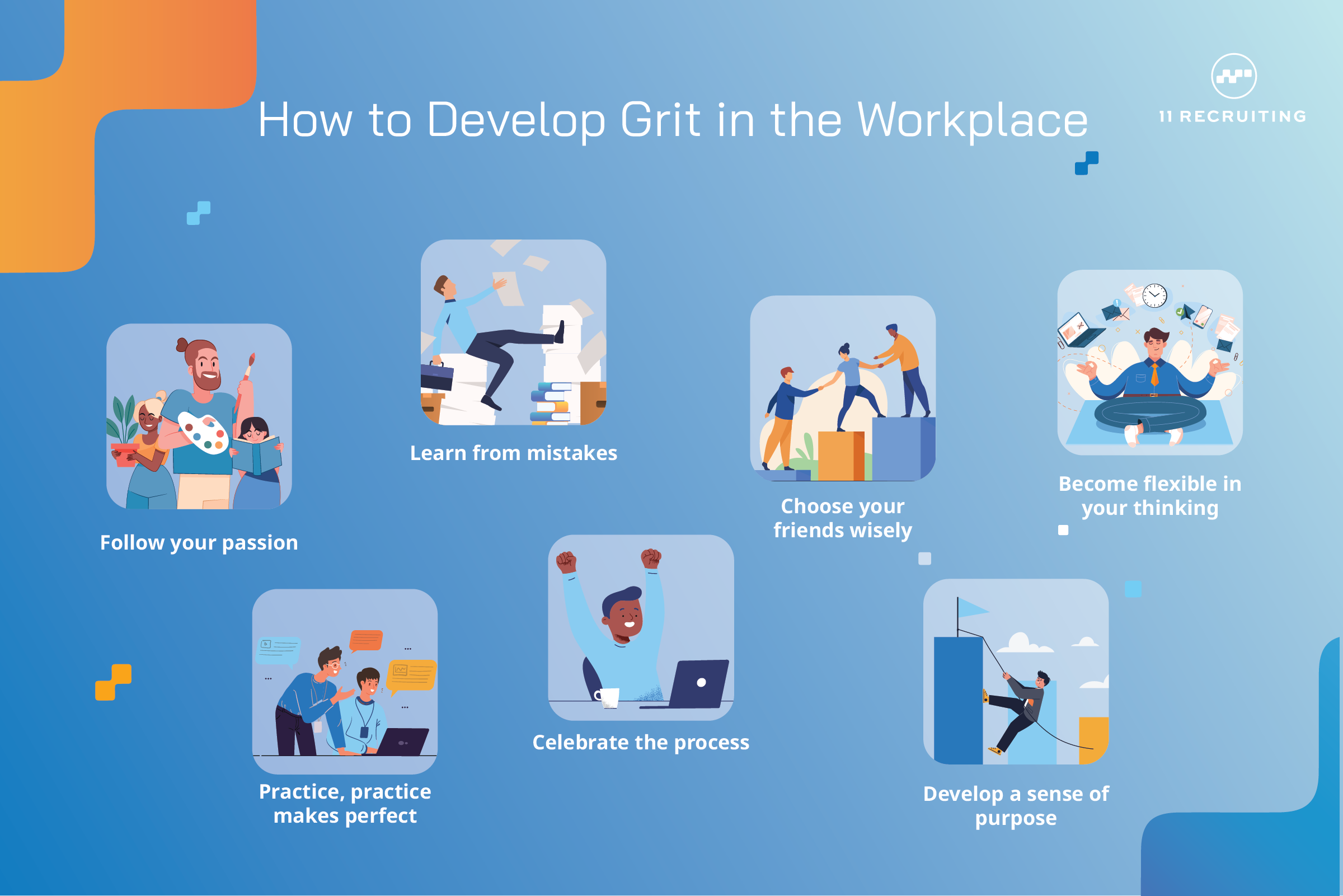
Have you ever wondered why some people seem to achieve their goals while others don’t? This is why it is important to know how to develop grit. The difference lies in the level of grit each individual has. Gritty people tend to push through the obstacles until they achieve their goals.
This article will discuss grit: how to develop it, and why it’s crucial.
What is Grit?
A best-selling author and TedTalk speaker, Angela Duckworth defines grit as the passion and perseverance for long-term and worthwhile goals. It is the passion to keep going even when tasks become tedious and difficult.
The term grit is often used interchangeably with resilience. While grit is the driving force to remain focused until you achieve your goals, resilience is the optimism to keep doing something.
Why is Grit Important?
You might know many intelligent individuals within your circles, but they never succeed in business or career. According to Duckworth, talent without grit might as well be unmet potential. You need learn how to develop grit to pave your way to your desired success.
Grit is essential because it equips people with the confidence to keep going even in the face of obstacles. So that you succeed using your talent, you need to become grittier.
Frequently Asked Questions
What is the meaning of grit for students?
Grit for students means persevering through challenges to excel academically. Challenges for students include complex subjects, harsh teachers, lack of tuition fees, failing exams, etc.
What characteristics describe gritty people?
Gritty people tend to be hardworking, courageous, resilient, and determinant. The thought that gritty people don’t face challenges is far from the truth. A person with grit will face a challenge head-on because they have clarity of purpose.
How do I help my child develop grit?
A child can learn to become gritty if you teach them to embrace failure as a learning experience. Parents also need to become their child’s best cheerleader. Praise them for their small wins. As you raise a child, it’s your duty to help them identify their passion. Most importantly, lead by example by being gritty yourself.
How to Develop Grit in the Workplace
Given the many challenges we face at workplaces, being gritty is essential. People aren’t born gritty. Instead, they learn how to develop grit over time. Here are some of the ways you can develop grit in your workplace.

- Follow your passion: When you do things you’re passionate about, you will continue doing them even when the going gets tough. For example, if you are a passionate football coach, you will persevere even when your team loses in tournaments. This is unlike when you practice a career you aren’t passionate about.
- Practice, practice makes perfect: The only way to sharpen a skill is to practice relentlessly. Some of the best Athletes spend years practicing ahead of a major tournament. Similarly, business people or employees need to practice their skills until they become perfect.
- Learn from mistakes: People tend to fear failure, which prevents them from trying out challenging things. Instead of viewing failure as a shameful thing, you should learn from your mistakes. Where did you go wrong? How can you improve the next time you attempt? What were the lessons learned from the trial?
- Celebrate the process: Celebrating the small wins will motivate you to attempt even the most challenging tasks. When people learn to be their biggest fans, they stop seeking validation elsewhere. In turn, they can focus on the bigger picture (goals).
For example, if your boss doesn’t recognize your efforts, you shouldn’t quit. Instead, you should celebrate your wins and work even harder.
- Choose your friends wisely: The people you hang around will determine your attitude toward your job, family, and life in general. As the adage goes, “show me your friends and I will tell what kind of a person you are.” It’s impossible to choose the people to interact with daily, but you can choose the people to spend your time with.
When you hang around people with a positive mindset, you will also view life positively. Likewise, if you spend time with people who complain about everything, you will start viewing things through a different lens.
- Develop a sense of purpose: Purpose gives you a sense of direction. Doing things without purpose is like boarding a bus without any apparent destination in mind. Lack of purpose means you don’t have any goals to achieve. People with clarity of purpose tend to be happier than those who don’t. Once you have a sense of purpose, learning how to develop grit becomes easier.
It’s crucial to set goals that align with your purpose. This way, you get to work on things that make you happy. Goals that don’t align with your purpose will only leave you unhappy, and you won’t be enthusiastic about achieving them.
- Become flexible in your thinking: Rigid thinkers see challenging tasks as unachievable. With a flexible thinking pattern, you will see challenges as opportunities to learn and grow. Grit develops when people meet challenges with creative methods of solving them.
Grit is necessary to succeed in any aspect of life. People are not born gritty but instead have to develop it over time. Developing grit requires passion, persistence, and the ability to learn through mistakes.
Was this article informative? Please take a look at other related articles in our blog:
Looking for more tips on becoming gritty? Head on to our candidate services page and let’s talk about honing your determination and passion to achieve whatever you want.

